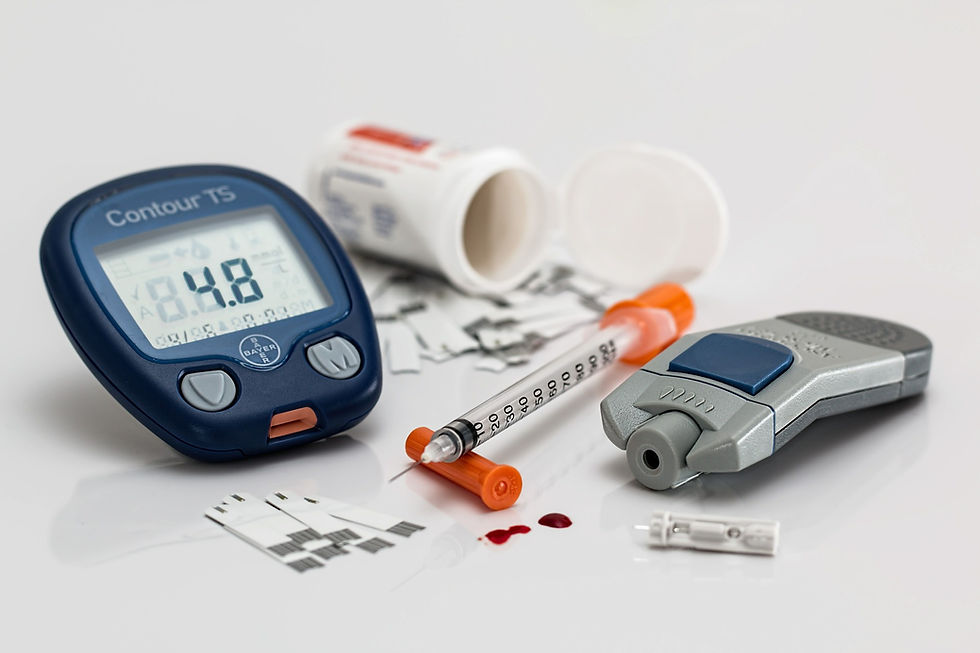Introduction
Diabetes is a chronic condition that affects millions of people worldwide. While it is commonly associated with blood sugar management and its impact on the body, many individuals are unaware of the intricate relationship between diabetes and oral health. This interconnection is significant, as it can have a profound effect on a person's overall well-being. In this blog, we will explore the interconnection between diabetes and oral health, emphasizing the importance of comprehensive care to manage both aspects of one's health.

Understanding Diabetes
Diabetes is a metabolic disorder characterized by high blood sugar levels, primarily due to the body's inability to produce or effectively use insulin, a hormone responsible for regulating blood sugar. There are two primary types of diabetes:
Type 1 Diabetes: This type is an autoimmune condition in which the body's immune system mistakenly attacks and destroys insulin-producing beta cells in the pancreas. People with type 1 diabetes require insulin injections or an insulin pump to manage their blood sugar.
Type 2 Diabetes: This type is more common and typically develops in adulthood. It is often associated with lifestyle factors like obesity, poor diet, and lack of exercise. Individuals with type 2 diabetes may require oral medications or insulin to manage their condition.
The Diabetes-Oral Health Connection
Oral health refers to the well-being of the mouth, teeth, gums, and surrounding tissues. The relationship between diabetes and oral health is a complex one, and it works in both directions: diabetes can affect oral health, and oral health can influence diabetes management.
Gum Disease (Periodontitis): People with diabetes are more prone to gum disease. High blood sugar levels can weaken the body's ability to fight off infection, making it easier for bacteria to grow in the mouth. When left untreated, gum disease can lead to tooth loss and other serious oral health problems.
Dry Mouth: Diabetes can cause a decrease in saliva production, leading to dry mouth. Saliva is essential for maintaining oral health as it helps to rinse away food particles, neutralize acids, and prevent tooth decay. A dry mouth can result in a higher risk of cavities and other dental issues.
Delayed Wound Healing: Diabetics may experience delayed wound healing, including oral wounds after dental procedures. This can lead to complications if not properly managed.
Increased Risk of Thrush: High blood sugar levels create a favorable environment for the overgrowth of the Candida fungus, causing oral thrush. This fungal infection can result in discomfort and changes in taste.
Altered Sense of Taste: Diabetes can lead to an altered sense of taste, impacting one's ability to enjoy food. This can influence dietary choices and overall health.
Managing the Relationship
To maintain good oral health while managing diabetes, individuals should follow these recommendations:
Maintain Regular Dental Check-ups: People with diabetes should visit their dentist at least every six months. Regular check-ups can help identify and address dental issues early.
Control Blood Sugar: Managing blood sugar levels is crucial for overall health, including oral health. A well-balanced diet, regular exercise, and adherence to prescribed medications or insulin can help keep blood sugar in check.
Practicing Good Oral Hygiene: Brushing at least twice a day with fluoride toothpaste, flossing daily, and using an antimicrobial mouthwash can help prevent dental issues.
Quit Smoking: Smoking exacerbates the risk of gum disease and other oral health problems. Quitting smoking can benefit both your oral health and your overall well-being.
Stay Hydrated: Drinking plenty of water can alleviate dry mouth, and sugar-free gum or lozenges may help stimulate saliva production.

Conclusion
The connection between diabetes and oral health is undeniable, highlighting the importance of holistic health management. By understanding and proactively addressing the relationship between these two aspects of health, individuals with diabetes can enjoy a higher quality of life and reduce the risk of oral health issues. Regular dental check-ups, good oral hygiene practices, and optimal blood sugar control are key elements in maintaining both oral and overall health. It's not just about treating the symptoms of diabetes; it's about managing the whole spectrum of health to lead a fulfilling and healthy life.



Comentários